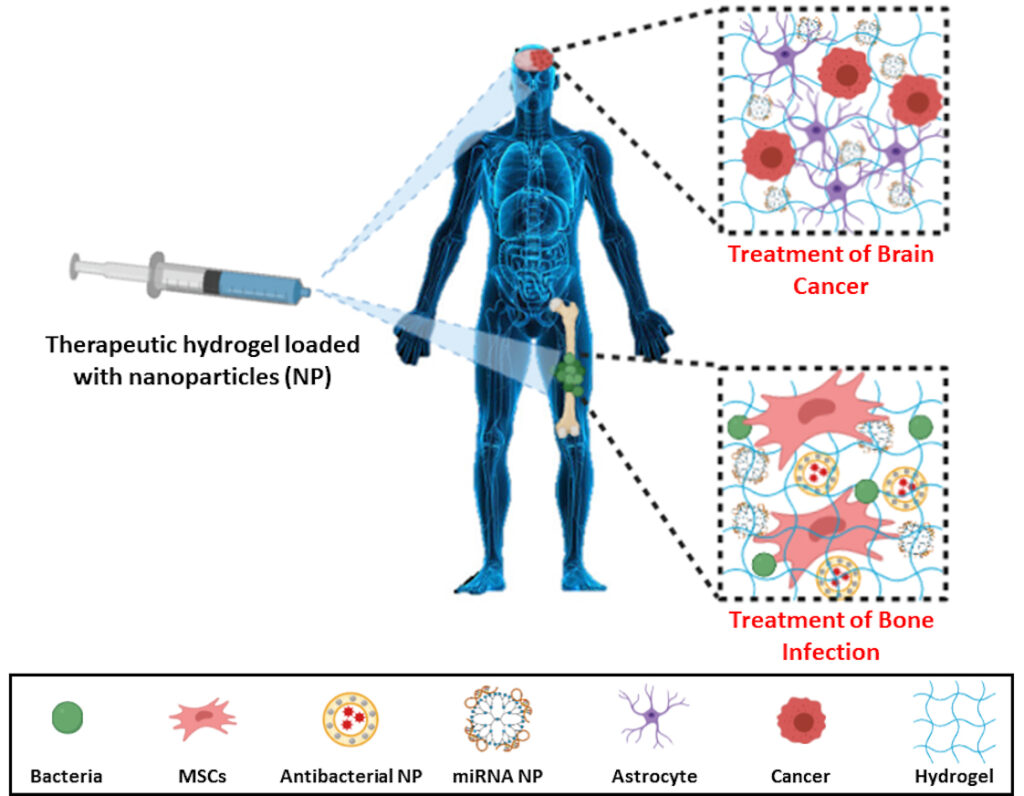
Meet Natalie Artzi, PhD—a research scientist at the Brigham with affiliations at the Institute for Medical Engineering and Science at MIT and the Wyss Institute at Harvard. Artzi is a Stepping Strong Innovator Award recipient, a member of the Stepping Strong Medical Executive Committee, an associate professor at HMS, and a winner of the Brigham Research Institute’s 2019 Bright Futures Prize.
In 2018, Artzi received a $100,000 Stepping Strong Innovator Award for her groundbreaking research on using nanotechnology to reduce infection after traumatic bone injuries. Artzi explains the challenge of large-scale bone injuries this way:
“Bone, the second most commonly transplanted tissue after blood products, is a highly vascularized tissue unique in its capacity to self-regenerate. Despite the natural healing potential of bone, it is not always able to repair large-scale defects, which can result in permanent bone loss, infections, and other complications. In serious cases, these complications can lead to a condition called chronic post-traumatic osteomyelitis—which, in turn, can threaten the viability of the limb and result in considerable morbidity.”
With funding from the award, Artzi’s team is developing a dual-therapy hydrogel that is capable of selectively delivering antibiotics to only bacterial cells present in the defect site, thus killing the infection while simultaneously delivering the necessary cues to enhance fracture healing in the surrounding bone tissue.

It turns out that the same material design principles Artzi developed for her work with the Stepping Strong project—specifically, using targeted nanomedicines that are selectively delivered to specific cell populations—can also reveal and kill cancer cells. Motivated by a 13-year-old family friend who was diagnosed with brain cancer, Artzi harnessed her expertise in nanotechnology to minimize side effects for children with brain cancer.
“Brain tumors are the most lethal childhood cancer, with a median survival rate of only nine to 15 months,” says Artzi. “Despite extensive efforts to develop better therapies, brain cancer cells are able to escape detection and destruction by the immune system. Since a highly selective membrane protects the brain, the blood-brain barrier, whose role is to prevent most molecules from penetrating into the brain, makes it even more challenging for drugs to reach a brain tumor. This means that even higher — and more toxic—doses of a drug may not be very effective for patients with brain cancer.”
With the funding from her Brigham Futures Prize, Artzi’s solution is to use nanoparticles that specialize in penetrating cancer cells that can be programmed to deliver drugs and a predetermined rate. The goal with this technology is to reveal and kill cancer cells in two ways: (1) activating the immune system by using molecules that act as “danger” signals, and (2) delivering these molecules efficiently to the brain by using an adhesive hydrogel, which can be sprayed onto and stick to the brain after surgery. This material would allow for the local release of a cocktail of molecules that will activate the immune system while circumventing the blood-brain barrier.
To learn more about Artzi’s work, visit natalieartzi.com.
